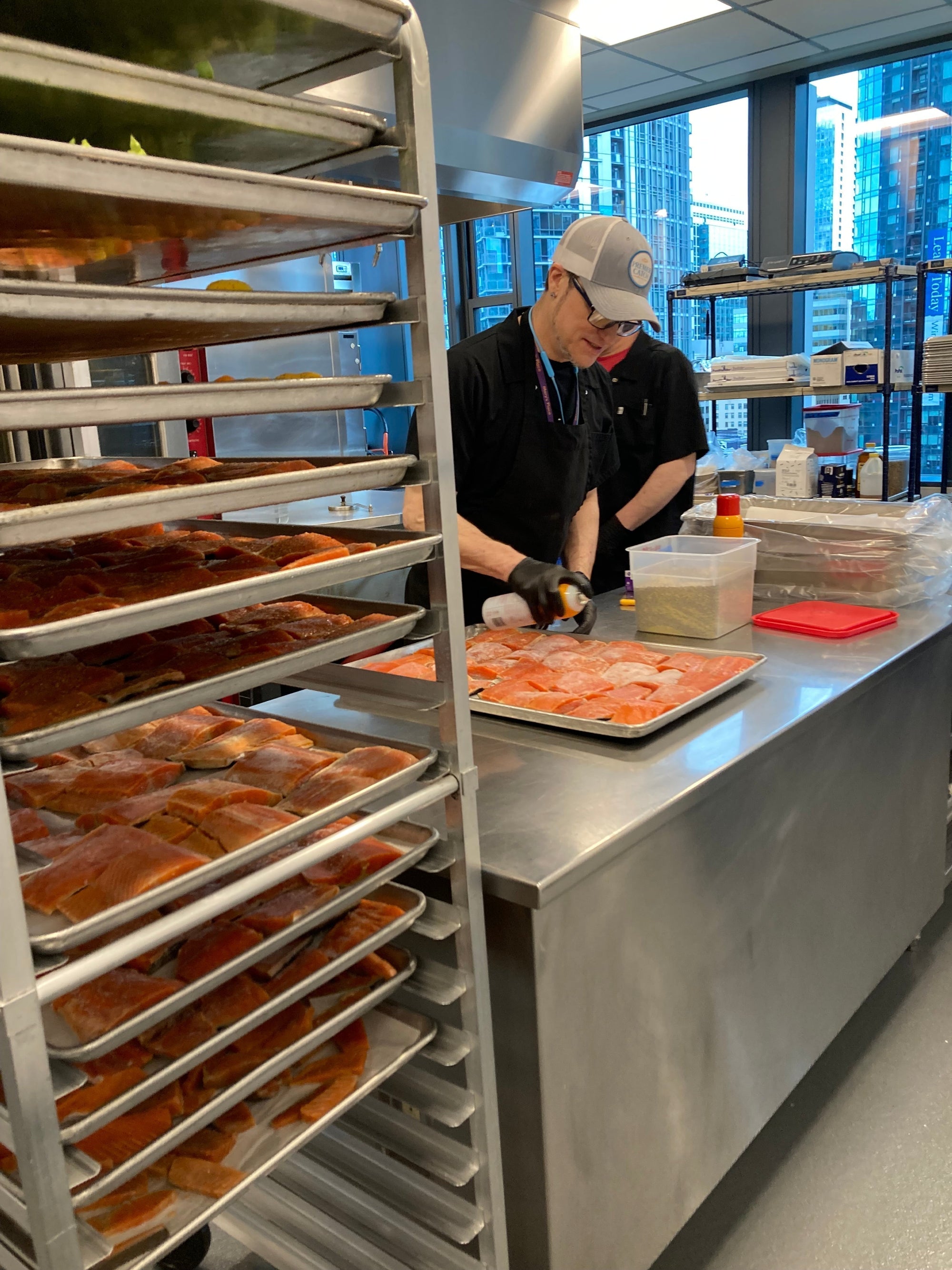Acute (short-term) inflammatory responses shield us from microbes, injuries, and insults that come from inside, like tissue damage caused by surgery or injury, inhalation of pollutants, and so many other things that happen to us throughout our day. As long as these problems don't get worse, no one notices them because they go away on their own, thanks to this acute inflammatory response. But diseases like inflammatory bowel disease, cardiovascular disease, neurodegenerative diseases, and cancer all have signs of inflammation in our blood; and while acute inflammation can be helpful, too many neutrophils (pro-inflammatory) can cause damage to other tissues and make inflammation worse, setting us up for a more chronic state of inflammation. Knowing how acute inflammation goes away can help us stop and treat inflammatory diseases in many different systems.
The Journal of Clinical Investigation published a great article highlighting how EPA and DHA (Omega-3’s) work as Specialized Pro-Resolving Mediators (SPM’s) to fight inflammation. And as a registered dietitian nutritionist, one of the most common questions I get is about inflammation and how to fight it through diet. The science behind omega-3s and inflammation is fascinating, and I'm excited to share how these essential fatty acids work in our bodies.
The Science Behind the Benefits
Wild-caught seafood contains three key omega-3 fatty acids: EPA (eicosapentaenoic acid), DHA (docosahexaenoic acid), and n-3DPA (docosapentaenoic acid). When we consume these omega-3s, our bodies convert them into powerful compounds called Specialized Pro-resolving Mediators (SPMs). These include:
- Resolvins
- Protectins
- Maresins
Here's what makes these SPMs so special: they don't just reduce inflammation – they actively help resolve it. Think of inflammation like a house party that's gotten out of hand. Traditional anti-inflammatory medications are like calling the police to break up the party. SPMs, on the other hand, are like a professional cleaning crew that not only stops the party but also cleans up the mess and repairs any damage.
What's particularly impressive is that these SPMs work at incredibly low doses – we're talking picograms to nanograms (that's a billionth of a gram!) When these compounds are present in your body, they:
- Help stop excessive neutrophil (inflammatory cell) infiltration
- Enhance the cleanup of inflammatory debris
- Promote tissue repair
- Support your immune system's ability to fight infections
Real-World Effects
This biological process translates into meaningful health benefits:
- Reduced joint pain and inflammation
- Better surgical recovery
- Enhanced brain health
- Stronger immune function
- Protection against allergies and asthma
For expecting and nursing mothers, these benefits are even more crucial. Omega-3s are found in breast milk and placental tissue, where they help develop the baby's immune system and may reduce their risk of asthma, respiratory infections, food allergies, and eczema.
Why Wild Works
I always specifically recommend wild-caught seafood (even before I co-founded a seafood company!) Wild fish, swimming freely and eating their natural diet, typically have higher levels of omega-3s and a better omega-3 to omega-6 ratio than farmed fish. This ratio is crucial because too many omega-6s can promote inflammation, while omega-3s help resolve it.
To optimize your omega-3 intake, aim for 2-3 servings of fatty fish per week. Some of my favorite options include:
- Wild King Salmon or Sockeye Salmon (one of the highest in omega-3s)
- Sablefish (richest in both omega-3s and other nutrients)
- Albacore Tuna (especially from U.S. waters)
- Halibut (a lean source that still provides beneficial omega-3s)
What's particularly exciting is that recent research has shown we can safely consume higher amounts of omega-3s than previously thought. Studies have demonstrated that doses up to 10 grams daily are safe and don't increase bleeding risk – debunking a long-held concern about high fish consumption. If you’re stressed about mercury, check out this article to relax you a bit.
While supplements can be beneficial, whole food sources of omega-3s from wild-caught fish provide additional nutrients that work synergistically in your body. Plus, when you choose sustainably caught seafood from trusted sources, aka Premier Catch, you're supporting both your health and our oceans!


